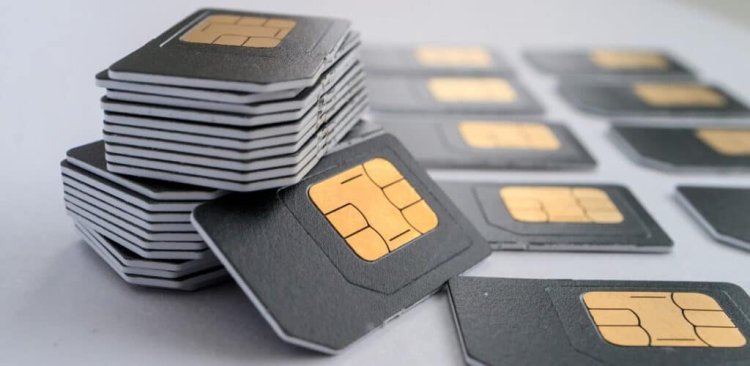Govt's Next Move After Switching Off Unregistered SIM Cards
The government regulator wants the court to lift orders that blocked the rollout of the Device Management Systems (DMS) in 2018

The Communications Authority of Kenya (CA) has reignited its court bid to install spying gadgets on mobile phone networks to detect counterfeits as the Saturday, October 15 deadline for registration of SIM cards inches closer.
The government regulator wants the court to lift orders that blocked the rollout of the Device Management Systems (DMS) in 2018, despite concerns that this would give it access to other customer data, including calls, messages and financial transactions.
However, it denied that the DMS has the capability to access phone records as well as the location, and mobile money transaction details of subscribers, insisting that the technology can only detect and record the unique identification number of mobile phones and assigned subscriber numbers.

A woman using her phone. /FILE
Busia Senator Okiya Omtatah had obtained the orders to block the systems arguing that it would allow CA to spy on private conversations between Kenyans as well as gain access to sensitive customer data, concerns that were also raised by a local telco operator.
However, the CA argued that it intends to use the monitoring devices to zero in on illegal mobile devices operating in the market without interfering with customers' privacy
“In the foregoing regard, it is not our submission that the DMS device does not and is not intended to infringe the right to privacy of subscribers, nor are there any proven less restrictive means of combating illegal devices,” Wambua Kilonzo, the lawyer for the CA, said, adding that the court was wrong in blocking the decision as the system is incapable of spying on subscribers.
Omtatah questioned the CA’s intention, arguing that the regulator had not invited public participation as required by the law prior to implementing the system. The High Court as a result declared the CA’s move unconstitutional, as it gave no assurance that it won’t be used by third parties to access private information.
CA had in January 2017 written to telco operators demanding that a contractor it had hired be allowed into the operators’ sites to install the snooping device, a matter which ignited a public uproar.
The High Court also found that the CA has no mandate in combating the use of counterfeit goods in the Kenyan market, noting that the law has assigned that role to the Anti-Counterfeit Agency. Counterfeit phones, imported mainly from Asia, are prevalent in many African nations and regulators claim that they are widely used by criminals because they are difficult to track.
The regulator switched off counterfeit phones in the past but claimed that consumers are still exposed to such devices, hence the need to have the system in place.
Tricks Govt Is Using To Enforce SIM Card Directive
CA meanwhile is now relying on telcos which have been enforcing policies to get millions of Kenyans to comply with its directive ahead of the October 15 deadline, with some of them encountering challenges making calls.
The tactics include sending frequent reminders, putting playbacks before phone calls, blocking some from making calls and using multimedia public communication messages.
Speaking to Viral Tea, one of the subscribers noted that he had a friend who revealed that a telco had continuously reminded him to register his SIM card by playing a 45-second message before every call. However, he was lucky to register through online means, a process which took him one minute and a photo of his national ID card.
Other users disclosed that they could only receive phone calls, forcing them to comply with the directive to avoid last-minute rushes and consequences.
Other tricks being used to ensure Kenyans comply with the directive include sending bulk pop-up messages that come after even 30 minutes leaving some subscribers frustrated, and announcements on TV, radio, newspapers and even different social media platforms.
CA had directed mobile service providers to ensure that the personal details of their subscribers were fully updated by April 15 under Kenya Information and Regulations 2015.

Communications Authority of Kenya (CA) Director General Ezra Chiloba. /COMMUNICATIONS AUTHORITY OF KENYA (CA)
However, the process was extended by six months after a nationwide uproar stemmed over doubts about the process which required users to provide their biometric data, such as facial features and fingerprints as well as national identification details or passport numbers.
Moreover, the telcos were under fire over the procedure to register, which had required them to visit their shops in person, forcing them to create online platforms for their subscribers to seamlessly register from the comfort of their homes.
CA has so far switched off over 200,000 users after they were found to have provided the wrong identification details.






